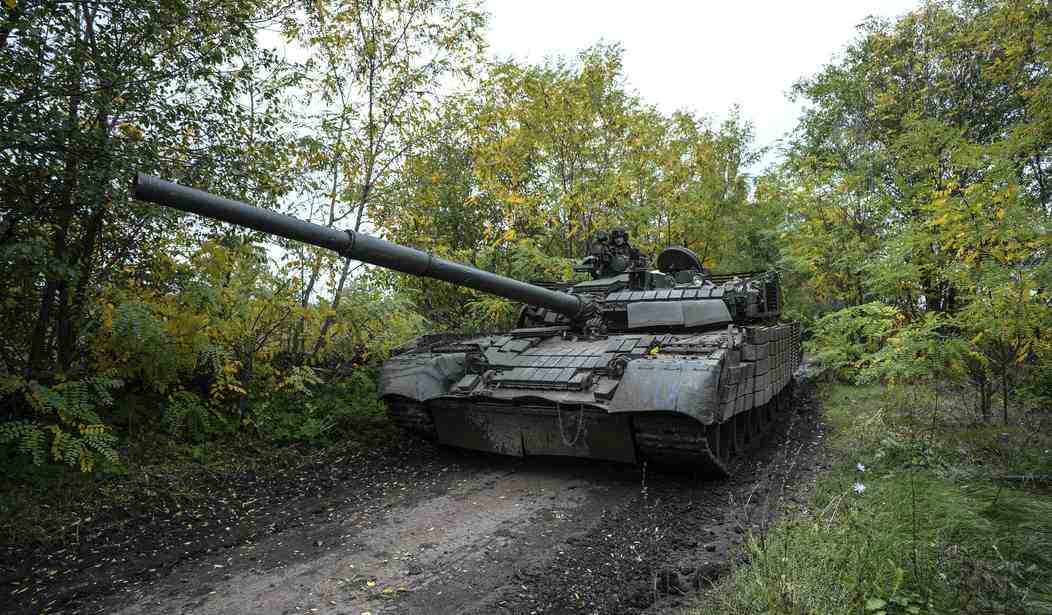Liberating Kherson on Friday might be a bigger deal in the Ukraine War than even all the news hype suggests.
Russia’s opening blitz against the capital of Kyiv stalled because Russian logistics couldn’t support enough troops and vehicles to take the city. The retreat was performed in mostly good order, but not before some of Russia’s best-trained and best-armed forces became casualties.
A similar effort to take Kharkiv never fully materialized, even though Kharkiv is much closer to the Russian border than Kyiv is.
The offensive in Donbas captured many settlements, but at great expense — and Russia’s offensive power culminated in July and has been in a ruinous stall ever since.
The only place where Russia enjoyed unambiguous success was in Ukraine’s south, in the Kherson and Zaporizhia oblasts (regions).
Of the four oblasts illegally (and fruitlessly) “annexed” on Russian strongman Vladimir Putin’s order in September, Kherson city was the only one of the four regional capitals actually under Russian control.
No longer.
Faced with an impossible logistical situation — thanks in no small part to precision HIMARS strikes — Russian commander General Sergei Surovikin last week ordered his forces to abandon Kherson Oblast west of the Dnipro River, including the capital city.
In a breaking news item, Russian forces are “retreating a further 15-20km from the east bank of the Dnipro due to the risk of being in range of Ukraine artillery.” [Emphasis added]
They couldn’t hold the right bank of the Dnipro. Days later, they’re ceding the left bank.
Putin’s annexation is a joke.
So now what?
That depends — are we talking militarily, diplomatically, or politically?
Let’s take those three one at a time.
Militarily, almost all you need to know is summed up in this one geolocated video from Russia’s crown jewel in the Black Sea.
Video of the extensive trenches and fortification #Russia is building in Henichesk at the entrance of the Crimea peninsula#Russia seems ready to abandon Zaporozhye and all of Kherson oblast pic.twitter.com/rf3xJna5a8
— @[email protected] (@PStyle0ne1) November 11, 2022
That’s right: Russian forces are building fortifications in Crimea, indicating that Moscow doesn’t expect to hold on to the conquered lands they still hold in Kherson or even further east in Zaporizhia.
Putin’s nearly bloodless taking of Crimea in 2014 is a matter of national and even personal pride. Ukraine President Volodymyr Zelenskyy vowed last month, “We will definitely liberate Crimea.” Putin promised in 2014 that Crimea is part of Russia “from now on and forever.”
Something’s gotta give, and lately, it’s Russian ground forces doing virtually all the giving.
But not in the air:
Reportedly multiple waves of Kh-101 cruise missiles, possibly first one passing over Sumy now, launched by Tu-95’s over Caspian Sea according to Ukrainian official in Kryvyi Rih
— ELINT News (@ELINTNews) November 15, 2022
The question, as posed by 1945’s Robert Farley, is whether Russia can “terror bomb its way to victory in Ukraine.”
Both my gut and brain agree: No.
Putin can destroy a lot of infrastructure and murder a lot of civilians, but it takes boots on the ground to conquer a nation. We learned that lesson the hard way in Iraq, where our military’s “small footprint” strategy failed to pacify that nation. And the U.S. military had, unlike Russia in Ukraine, completely smashed the Iraqi military.
Diplomatically, there are reports that Putin has been “offered surrender terms by the West,” although “surrender” is too strong a word.
• Plan would see Russia give up all territory in Ukraine except Crimea, which would become demilitarised zone.
• In return, Putin and cronies would avoid war crimes prosecution and remain in power, Valery Solovey claimed.
This would be a peace deal — not a surrender of Russian forces, occupation of Moscow, or anything like that.
Is it true? I certainly hope so. I’ve been arguing for a “two-track” policy of arming Ukraine while seeking peace. There are a lot of details to work out, including the fate of tens of thousands of Ukrainian children kidnapped to Russia, but broadly speaking, the peace deal outlined above seems as equitable as is likely achievable.
But.
Politically is where things get really interesting.
While Putin’s cronies might jump at a peace deal that lets them get back to the vital business of plundering Mother Russia, nationalist interests are less excited.
Popular fascist “philosopher” Aleksandr Dugin called last week for Putin to be executed after the retreat from Kherson. He went on to say, “The authorities in Russia can’t surrender anything else. The limit has been reached.”
Well, what are nationalists like Dugin to do when the rest of Kherson is abandoned and Crimea is under threat?
Russian politics are too opaque, and always have been, to hazard any guesses as to what might happen to Putin and his clique. But it does seem that preparations are being made in anticipation of some kind of sudden change.
ISW reported late last week that “Wagner Group financier Yevgeny Prigozhin continued to form parallel military structures in Belgorod and Kursk oblasts, even though there is no threat of a Ukrainian ground invasion into Russian territory.”
“Prigozhin will also likely continue to pursue the formation of parallel military structures more broadly to expand his own influence and standing in Russian political circles,” ISW writes, “and to develop his own private army.” [Emphasis mine]
It appears that there’s a growing force of privately-held ground units headed by a man with his own agenda.
Sleep tight, Comrade Putin.










Join the conversation as a VIP Member